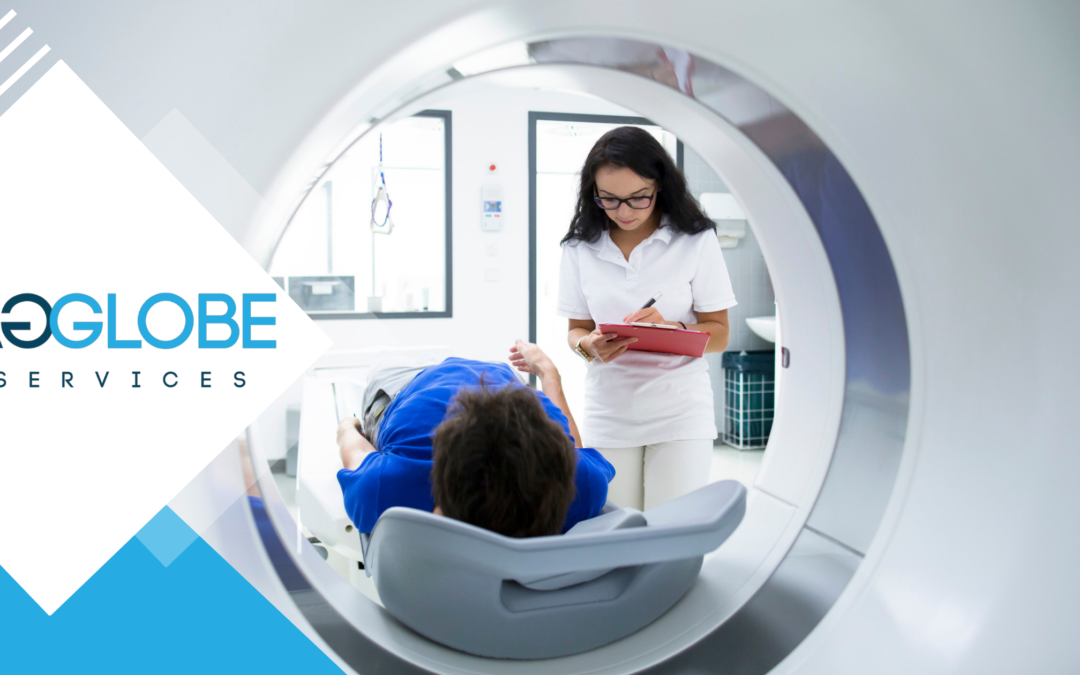
by hammad | May 24, 2023 | Blog, Client, Healthcare, Job Seekers
The heart is located in the center of our body. This body part is often associated with our emotions toward other people. In the Healthcare field, though technical skills are a basic requirement, having remarkable soft skills such as effective communication, team player, compassion, and problem-solving will help you in delivering the best care for your patients. This is pouring your heart into your work and for other people. Having these soft skills will help you grow as a professional as it makes you more satisfied at your job. In this blog, we will learn different things such as examples of soft skills and their importance in Healthcare, their impact on patient outcomes and satisfaction, and overcoming the challenges in incorporating soft skills into Healthcare.
Examples of Essential Soft Skills and Their Importance
Having soft skills play a vital role in providing your patients with the best care for them. Here are the soft skills that can help a Healthcare Professional:
- Adaptability
- Since Healthcare is an ever-changing field, having this soft skill allows the Healthcare professional to be able to adapt to new procedures, rules, and technologies to provide the best service to his/her patients. Adjusting to a new thing will not be stressful or hard. Also, Healthcare Professionals who have this skill are more open to learning new things that will help them grow professionally.
- Empathy
- One of the most important to have in Healthcare as it helps build trust and rapport between the Healthcare Professional and the patient. It allows an individual to connect and understand his/her patients on a greater level because emotions are attached to this skill. Having empathy also helps Healthcare Professionals to feel more satisfied in their jobs due to a deeper understanding of their purpose.
- Effective Communication
- Perhaps the foundation of all interactions with other people. To be able to connect with your patients successfully, communicating effectively is a must. As a Healthcare Professional, you must be able to relay complex information easily, listen attentively, and respond properly to your patients.
- Problem-Solving
- A Healthcare Professional is able to analyze a sprouting issue, develop an immediate and effective solution, and implement it efficiently is important in Healthcare, especially in emergency situations.
How soft skills can affect patient satisfaction and outcomes?
When Healthcare Professionals have the soft skills stated earlier, patients tend to be more treated easily and faster because they will listen to their physicians and nurses right away. This helps them reduce healthcare costs as well. Patients will have a better and clearer understanding of their medical conditions, fewer hospital readmissions, and improved health because they believe that the professionals that they are talking to are reliable.
Related: Unity in Diversity: The Vital Role of Cultural Competence in the Healthcare Environment
Challenges in Incorporating Soft Skills in Healthcare and How to Overcome Them
Even though essential, incorporating soft skills can be challenging. Some factors that can be the issue are the following:
- Time Limitations
- Due to the heavy workloads that our Healthcare Professionals are carrying every day, it makes it difficult for them to communicate effectively, connect deeper, and show sincerity and empathy to their patients. Most of the time, convenience comes into play as well as Healthcare Professionals lean more on the traditional approaches and are hesitant to learn new practices.
- Lack of Resources
- This is a common challenge to most Healthcare Organizations when trying to integrate soft skills. Manpower, time, access to modern technology, and cost are the factors that hinder the development of soft skills to provide high-quality patient care.
To solve these challenges, a Healthcare Organization can implement strategies such as providing education and training on soft skills, incorporating technology tools to streamline communication and collaboration, and promoting a culture of teamwork and collaboration. Offering flexible work schedules, encouraging peer-to-peer coaching and mentoring, and providing resources such as patient education materials can also help to support the development of soft skills.
Developing soft skills can help healthcare professionals, students, and aspiring workers advance their careers and make a positive impact on patients’ lives. With our expertise and resources at AG Globe Services, we can help you find a job that aligns with your career goals and provides a supportive work environment that values soft skills. Connect with us to learn more about how we can help you achieve your career aspirations.


by hammad | May 9, 2023 | Blog, Client, Healthcare, Job Seekers
Healthcare is a fundamental right for every citizen. Who provides the Healthcare that they needed? Healthcare employees. Taking care of the health of the public is a big idea but there is more to it such as conducting research, developing new treatments and therapies, diagnosing and treating patients, and educating the masses on how to take care of our health. With the expanding variety of patient populations, cultural competence has become a key skill set for Healthcare employees. What is cultural competence? It refers to the ability of a Healthcare professional to understand and respect cultural differences in their patients and to provide appropriate care while keeping in mind of their patient’s cultural beliefs, values, and practices. As we go along in this blog, we will discuss its importance and study how cultural competence can improve patient results, reduce Healthcare differences, and promote a more inclusive and diverse workplace.
Understanding the Cultural Differences
Healthcare and Healthcare Providers have been viewed differently across different cultures. Cultural beliefs also play a factor when it comes to Healthcare decision-making. As a Healthcare professional, how important it is to understand the cultural differences of our patients? To do this, we must acknowledge that cultural differences exist and we should be open to learning about and respecting those differences such as believing in traditional or herbal treatments or medicines. Sometimes, spiritual practices are also present. These things mentioned will affect how the patient or his/her family will make their decision. Always remember, being respectful of someone’s views is the key to understanding cultural differences.
Enhancing Patient Communication
Once we are culturally competent, we will be able to communicate with our patients effectively. We can relay messages easily and they will be able to understand them such as terminologies that can intimidate, confuse, or discourage them from getting the needed treatment. Being able to level ourselves accordingly will not just help our patients but will benefit us more because we are also improving our communication skills through language barriers and cultural communication styles.
Related: Music and Healing for Healthcare Workers
Addressing Healthcare Disparities
In every Healthcare setting, Healthcare disparities are always present.
- Racial and ethnic disparities- people that belong to ethnic groups are more vulnerable to Healthcare disparities than non-minority populations due to a lack of access to modern medicine.
- Socioeconomic disparities- people that earn low income are also less likely to have access to quality Healthcare.
- Geographic disparities- just like people in ethnic groups, people who live in far rural areas, due to geographical reasons, have limited access to good health services as well.
- Age-related disparities- as our bodies get old, we are more prone to different diseases. Access to long-term care can be a challenge for older people.
- Sexual orientation and gender identity disparities- in places where LGBT individuals are being discriminated against and deprived of equality in society, they experience Healthcare disparity and may have limited access to quality Healthcare services.
Creating a culturally inclusive workplace
Providing a safe space and environment for our diverse patients is a great way of showing that we care for them no matter our differences. Having regular training and education regarding cultural competence is an effective solution for this matter. Our Healthcare professionals will be able to understand different cultures, values, and practices. We will also be able to teach them ways how to communicate with our patients properly and effectively without disregarding their views on Healthcare.
As we move towards a more diverse and multicultural society, being culturally competent should be essential, especially in the Healthcare field. Our Healthcare employees are the keys to encouraging equal treatment for everyone.
If you’re looking for a career in Healthcare that values cultural competence, AG Globe Services can help you find your dream job. Join us in promoting cultural competence in Healthcare and take the first step towards a rewarding career. Contact AG Globe Services today!


by hammad | Apr 19, 2023 | Blog, Healthcare, Job Seekers
In our most recent Career Spotlight feature, we will be exploring the profession of a CT Technologist, which is highly sought-after and offers excellent opportunities for growth and advancement. These Healthcare Professionals are crucial in diagnosing and treating a diverse range of medical conditions. Due to the rapid development of medical technology, this role has become increasingly important in the Healthcare Sector. This blog will cover the responsibilities of a CT Technologist, the skills and qualifications required to pursue this career, and the challenges and opportunities presented in this field.
The American Society of Radiologic Technologists defines a CT Technologist as a Healthcare Professional who specializes in operating CT equipment to produce detailed 3D images of a patient’s internal organs, tissues, and bones. These images aid physicians in diagnosing and treating a range of medical conditions such as tumors and cancers, heart disease, blood clots, fractures, and brain or spinal cord injuries, among others.
In the daily course of their work, CT Technologists are responsible for several tasks, including explaining the CT scan procedure and positioning the patient on the bed to capture the best images. They also adjust the CT equipment to capture specific body parts such as the brain, chest, and abdomen, review and analyze the CT images to ensure their accuracy and quality. After conducting required tests for their patients, they discuss the scan results with physicians and other Healthcare Professionals involved to provide optimal treatment for the patient and maintain the CT equipment to guarantee its proper functioning when needed.
To become a qualified CT Technologist, one needs a combination of education, training, and practical experience. Relevant skills include having at least an associate degree in radiologic technology or a related field, earning certification by passing an exam covering practical skills and technical knowledge related to CT imaging and having an eye for detail to recognize minute changes in CT pictures that could indicate a medical issue.
CT Technologists are met with many challenges each day, some of which can include:
Radiation Exposure
The equipment used by CT Technologists emits radiation, which can be harmful if the procedure is not performed correctly. Strict safety protocols must always be followed.
Technological Advancements
CT Technologists need to keep up with the latest advancements in medical technology since science and technology are continuously evolving.
Patient Care
CT Technologists must provide excellent patient care as they are critical to accurate diagnosis and treatment by providing high-quality CT images.
Although there are a few challenges that come with being a CT Technologist, there are some great advantages in this career, such as:
Job Growth
Due to advances in medical technology, the demand for CT Technologists is expected to rise in the coming years.
Specialization
CT imaging has several areas of specialization, such as cardiac CT or CT-guided biopsies. Specializing in one area can be an excellent opportunity.
Teamwork
CT Technologists are part of a Healthcare team and collaborate with various Healthcare Professionals to provide the best possible care for their patients. This presents an excellent opportunity for professional growth.
It is evident that CT Technology will continue to play a significant role in the Healthcare Industry. With the increasing demand for this role, aspiring and certified CT Technologists can look forward to an exciting and rewarding career path.
Finding your dream job as a CT Technologist?
Here at AG Globe, we will help you find the best Healthcare employer for you! Get in touch with our team to make your dream come true.


by hammad | Mar 15, 2023 | Blog, Healthcare, Job Seekers
Mental health is as important as our physical health. According to the Centers for Disease Control and Prevention (CDC), our mental health is also related to our psychological, emotional, and social well-being. Taking care of it is very important because the other three aspects will be affected once it is neglected, resulting in worse conditions. In the Healthcare field, healthcare employees are always vulnerable to different mental health challenges because of exposure to different factors such as patients, drugs, diseases, and the atmosphere. In order to be happy and relaxed while serving our patients, we must take good care of our mental health.
Most Common Mental Health Challenges
There are 4 common mental health problems for our Healthcare Employees:
Burnout. This is a type of work-related stress due to feeling drained most of the time. Feeling tired once in a while is normal but in the healthcare industry, healthcare employees need to attend to different patients in a day and the stress will start to build. Once different problems pile up, you will feel drained, and this means that you are already having a burnout.
Depression. This is a common and serious mental health problem in the industry as well. This negatively impacts how you feel, behave, process thoughts, and the way you act on certain things.
Anxiety. Constant feelings of panic, stress, nervousness, fear, and rapid heartbeat are symptoms of an anxiety attack. This greatly affects the behavior and may feel the want to withdraw from people around you, the work, and sometimes avoid the current situation that the person currently belongs to.
Post-traumatic Stress Disorder (PTSD). This type of mental health problem is not just for war veterans, even in the healthcare industry this is present. In the recent events of the COVID-19 pandemic, different patients suffer and die from left to right, and our front liners witnessed most of them. This greatly hit them and suffer this type of fallback.
Compassion fatigue. Decreased productivity is one result of this mental health problem. This is mainly caused by job dissatisfaction, heavy work atmosphere, and such. The person having this problem will sometimes take it out on other people in his/her surroundings like patients, colleagues, and visitors which can result in a bad reputation for the team and the hospital also.
How can we improve our mental health?
There are different strategies on how we can improve it such as self-care practices like regular exercise, eating healthy meals in a regular manner, getting enough sleep, and doing a relaxing activity from time to time.
There are mental health support programs that can help you maintain a healthy mind such as seminars or webinars. Listening to experts is one great way to resolve a mental health problem before it gets worse.
Having policies that promote mental health improvement in the workplace greatly helps all employees also. Your employees will feel that they are being taken care of and appreciated as well.
Prioritizing our mental health will help us not just do our jobs happily but will help us also live our individual lives to the fullest. Addressing these challenges at the earliest time possible should be our utmost priority.
Are you tired of the same old work routine and looking for a change? AG Globe Services has got you covered! Don’t wait any longer, call AG Globe Services today and take the first step towards a more fulfilling career!


by scott | Oct 19, 2022 | Blog, Job Seekers
We know our computers mess up our circadian rhythms for sleeping. But do you know what else can keep you up at night? The night shift. Working the night shift definitely is not for everyone. But there are some big benefits if you learn to hang out with the night owls of the nursing world. If you find yourself new in your career, or if you’ve recently decided to take up a new night shift, here are some tips and tricks to help you get through it!
Benefits of Working the Night Shift
The night shift usually comes with a pay differential but that’s not the only benefit. Unless you’re in the ER, the night shift can be a less demanding time for nurses. Most patients are sleeping and so are their families. There are no navigating questions from family members in most units overnight. This, along with the fact that most patients are comfortably sleeping, makes the night shift a less stressful alternative to daytime work. With that said, it can take time to teach your body to acclimate to staying up into the wee hours. This next section will give you some tips on how to set yourself up for success.
Getting used to your first nights as a new night shift worker can be hard. Try these tips to improve your adjustment period:
Get a full 8 hours of sleep before your shift.
Especially at first. Invest in some good blackout curtains to make sure the sun doesn’t interrupt your slumber. Your goal is to establish a steady routine where you gradually come down from work and are asleep within a couple of hours after you get home (or immediately if you can swing it). This probably means no caffeine after 3:00 am for most people. You should avoid checking the computer when you get home, too. (Remember what we said about your circadian rhythms?) Maybe take a warm bath or shower after every shift. Get your comfy jammies on. Read a book in bed. Whatever routine tells your body it’s time to come down from the job. Establish this as your new bedtime normal and you’ll be less likely to crash after your first few night shifts.
Organize your schedule around prioritizing healthy habits.
Eating healthy on the night shift takes some preparation. Make sure you’re avoiding sugar-filled foods and soda, which can be tempting for the quick rush they provide when you’re tired. Try to exercise either before or after your shift. For example, doing yoga when you get home after work can slow down your breathing and center you for sleep. Or, to wake up in the afternoon in preparation for your shift, get outside and exercise. We know night shift nurses can be prone to illnesses and weight gain. Why? Because you’re walking around less and burning fewer calories. Make sure you’re taking extra care to stay healthy before, during, and after your shift.
Stay busy during the night shift.
It will keep you from getting sleepy. Try spending time with the patients who are awake. Or, if there are special projects that your nurse manager needs done, sign up. The idea is, even if the shift is slow (as we mentioned, this is a big plus) that you are staying busy. Stocking supplies, charting, and more, can all be done to prep for the day shift.
Find balance.
This is the trick if you work the night shift. You don’t want your late hours to disrupt the rest of the family. You also don’t want to isolate yourself from them. Try to work in a routine, perhaps, where you’re packing the kid’s lunch before school or picking them up before you leave for work. Use your days off wisely to hang out with your friends and family. Use texting and email, Zoom, and phone calls, to be there even when you’re not.
If you’re ready for your next healthcare placement, get in touch with AG Globe Services today! Click here to check out our jobs and get ready to make your mark.







